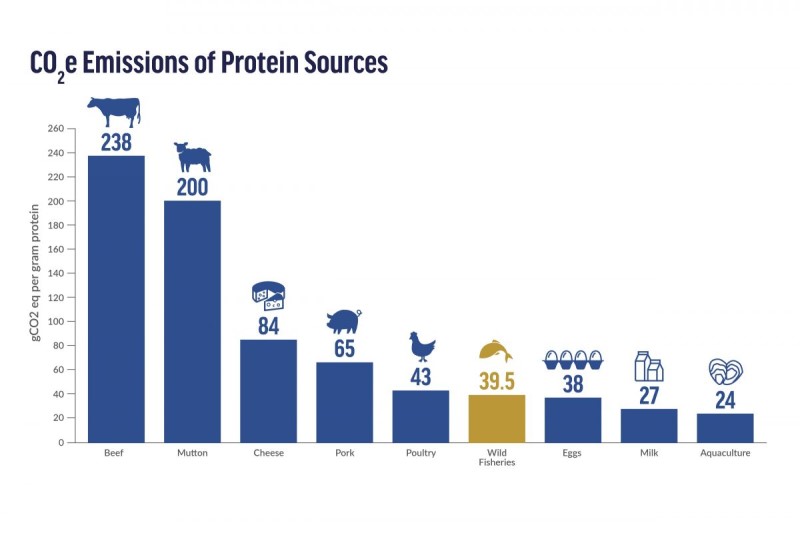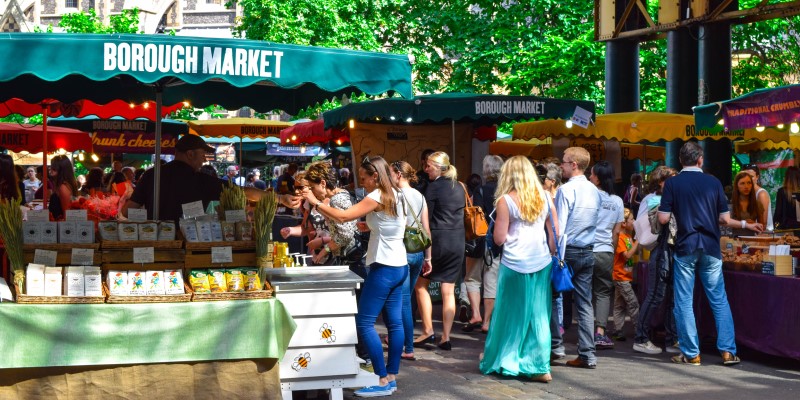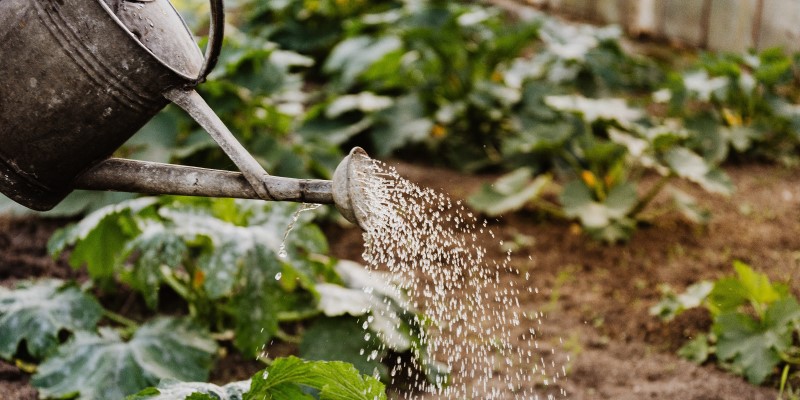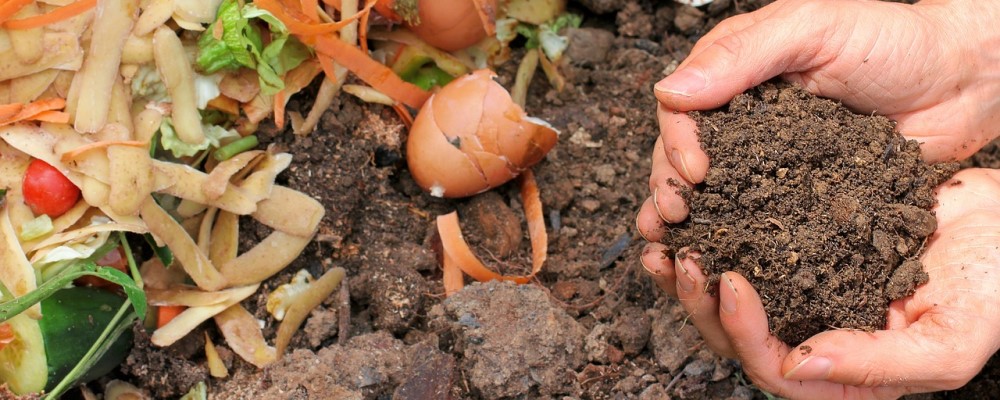As 2023 draws to a close, it’s crucial to renew our commitment to a more sustainable lifestyle for the betterment of our planet. The desire to live in harmony with the environment is stronger than ever, driven by growing concerns about climate change, pollution, and biodiversity loss.
“The Earth does not belong to us: we belong to the Earth. — Marlee Matlin
There are plenty of things you can do to lower your own impact on the environment. To help you take meaningful steps towards a greener future, we’ve put together 25 actionable, sustainable living tips that will help to reduce your carbon footprint.
Let’s dive into these sustainability tips that can significantly impact 2023 and beyond.
Table of Contents
How to Eat More Sustainably
Let’s take a look at some sustainable living tips related to eating:
1. Prioritise Sustainable Seafood:
When choosing seafood, take a look at the GoodFish guide to ensure ocean-friendly choices.
2. Embrace Tap Water:
Opt for tap water instead of buying single-use plastic bottles. Buy yourself a refillable water bottle for work or the gym. This reduces plastic waste and conserves energy. Consider using a water filtration system for cleaner water.
3. Reduce Meat Consumption:
Reducing meat consumption, particularly from factory farming, can significantly lower your carbon footprint. Explore plant-based alternatives and incorporate sustainably sourced seafood into your diet. Meats like beef, mutton and pork are a major source of the global emissions of carbon dioxide.

4. Make Informed Dairy Choices:
Be mindful of the carbon emissions associated with dairy products. Consider alternatives like plant-based milk and cheese to reduce your environmental impact.
5. Cook at Home to Minimise Food Waste:
Cooking at home allows you to control ingredients, packaging, and reduce food waste. Home cooking means you don’t have to rely on home delivery services where all the food comes packaged in plastic. It’ll save you money too!
How to Shop More Sustainably
Shopping is great fun! However, it is also a great (not in a good way!) source of waste. Here are some useful sustainable living tips relating to shopping:
6. Choose Reusables:
Don’t use plastic bags! Carry reusable shopping bags and invest in mesh produce bags to reduce single-use plastic waste. Quality over quantity is key when it comes to reusable bags.
7. Seek Certified Sustainable Products:
Look for items that have the GECA eco-label to support sustainable and ethical products. Verify the legitimacy of sustainability claims.
8. Adopt Mindful Shopping:
Before making a purchase, ask yourself if it’s necessary and whether it has a lasting purpose. Reduce waste by repairing, repurposing, or recycling items you no longer need. Even giving something away can help reduce the amount of waste that heads to landfills.
9. Shop Seasonally and Regionally:
Supporting local and seasonal foods can reduce the greenhouse gas emissions associated with food transportation. Going to your local farmers market means that you’re getting a product straight from the source.

10. Embrace Slow Fashion:
Ditch fast fashion and choose clothing that lasts longer than a season and supports sustainable fashion brands. Slow fashion prioritises sustainable materials and ethical production.
How to Travel More Sustainably
11. Embrace Public Transportation:
Reduce your carbon footprint by using public transportation, biking, or carpooling. Explore options like electric scooters in urban areas. Avoid using your car for short trips – if your legs work, use them!

If you’re interested in practical ways to reduce your carbon footprint, be sure to read our article, Top Tips to Reduce Your Ecological Footprint: Lower Your Carbon Footprint Easily!
12. Minimise Air Travel:
When possible, opt for train or bus travel instead of short-haul flights. Since COVID, virtual meetings are easier than ever to arrange.
How to Live More Sustainably
Here are some tips to live a more sustainable lifestyle. If you take the time and think about your day, you’ll find that there are ways to embrace sustainable living with virtually everything you do. Don’t forget that you don’t need to do everything! Start with something simple and do it until it becomes a habit, then start with something else.
13. Manage Your Digital Carbon Footprint:
Be aware of the environmental impact of digital activities. Reduce email clutter, limit cloud storage usage, and opt for lower-resolution video streaming.

14. Grow Your Own Food:
Home gardening can promote sustainability. Grow fruit and vegetables suited to your local climate, focusing on regionally relevant crops. This is also a great way to save money and gives you an excuse to get outdoors. Include the kids, and it becomes a fun family activity!
The future will either be green or not at all. — Bob Brown
15. Reduce Single-Use Items:
Replace disposable items with reusable alternatives in your daily life. From containers to kitchen cleaning supplies, every swap makes a difference.
16. Ditch Single-Use Straws:
Invest in reusable straws made from sustainable materials or drink directly from the glass. You can minimise your energy consumption each time you have a drink!
17. Explore Upcycling:
Get creative with repurposing items that have served their primary purpose. Turn old containers into planters or give new life to worn-out clothing. Sending it to the landfill means the end of its life, but you can extend this by being creative. This creativity is fun and makes a great conversation piece when you next have visitors over!
18. Reduce Cigarette Butt Pollution:
If you smoke, use portable ashtrays to collect cigarette butts until you can properly dispose of them. This simple step reduces a common form of plastic pollution.
19. Take Action, No Matter How Small:
Remember that even small changes contribute to a more sustainable future. Engage with local businesses to promote eco-friendly products and sustainable practices. Living sustainably starts with making the changes, not just thinking about them.
The greatest threat to our planet is the belief that someone else will save it. — Robert Swan
How to Have a Sustainable Home
We spend so much of our time at home and it’s easy to make lifestyle changes that:
- save energy
- save water
- save money!
Here are a few simply sustainable living tips that you can start in your own home:
20. Use Less Hot Water:
Wash your clothes in cold water, lower the temperature setting on your outdoor water heater, and take shorter showers.

21. Start a Compost in Your Garden:
Don’t throw away your food scraps – put them into a compost and allow them to decompose. This ‘black gold’ can then be used in your own garden as fertiliser. Lower the waste that would normally head straight to a landfill.

Interested in starting your own compost? Check out our article, Compost At Home: The Great Benefits Of Composting For Your Home
22. Turn off Lights and Electronics:
Turn it off at the wall switch if it’s not being used or fully charged. Switching your lighting away from incandescent bulbs to LED lights can also improve your home’s energy efficiency.
How to Encourage a More Sustainable Office
The office is often though of as a place where we can’t practice sustainability, since it’s not ‘our’ space. However, we should be taking more responsibility for the place we work – a lot of us spend 40 hours of our week there! Here are some sustainable living tips for the office that you might be able to suggest at your next meeting:
23. ‘Greenify’ Your Office Space:
Get rid of those dust-covered plastic plants and replace them with the real deal! Adding plants to your office can purify the air, reduce stress and increase productivity.
24. Get Rid of Individual Rubbish Bins:
Change over to centralised bins for rubbish, recycling, and even composting. People will start to become a little more responsible for their waste habits if they know that others are watching! Those recycling bins will be overflowing with paper and the like – most of which would have otherwise ended up in a general waste bin.
25. Use Natural Cleaning Products:
Switching to biodegradable and eco-friendly cleaning supplies can improve indoor air quality and lower the environmental impact of chemicals.
FREQUENTLY ASKED QUESTIONS
Q: What is sustainable living?
A: Sustainable living refers to adopting a lifestyle that reduces our negative impact on the environment and promotes the conservation of natural resources for future generations.
Q: Why is sustainable living important?
A: Sustainable living is important because it helps reduce pollution, conserves resources, and promotes a healthier planet. By making sustainable choices, we can ensure a better and more sustainable future for ourselves and the generations to come.
Q: How can I be more eco-friendly?
A: You can be more eco-friendly by making small changes in your daily routine. This can include reducing your energy consumption, recycling, using reusable products, and making eco-friendly choices in your shopping habits.
Q: What are some simple tips to live a more sustainable lifestyle?
A: Some simple tips to live a more sustainable lifestyle include using public transportation or biking instead of driving, reducing water consumption by taking shorter showers, and using energy-efficient appliances and lightbulbs.
Q: What is fast fashion and how does it impact the environment?
A: Fast fashion refers to the trend of producing and purchasing cheap, low-quality clothing that is quickly discarded. It impacts the environment by contributing to excessive waste, water pollution, and the exploitation of workers in the fashion industry. Materials like hemp, linen and organic cotton are better than polyester, nylon and conventional cotton.
Q: How can I reduce food waste?
A: You can reduce food waste by planning your meals ahead, buying only what you need, and storing food properly. Additionally, composting is a great way to repurpose food scraps and reduce waste.
Q: Why is it important to recycle?
A: Recycling is important because it helps reduce the amount of waste sent to landfills and conserves natural resources. By recycling, we can save energy, reduce pollution, and protect the environment.
Q: What are some tips for reducing plastic use?
A: Some tips for reducing plastic use include using reusable shopping bags, opting for glass or metal containers instead of plastic ones, and drinking tap water instead of bottled water.
Q: How can I save water at home?
A: You can save water at home by:
- fixing any leaks
- taking shorter showers
- turning off the tap while brushing your teeth or washing dishes
- and using water-efficient appliances.
Q: How long does it take for plastic to decompose?
A: Plastic can take hundreds of years to decompose, depending on the type of plastic. For example, a plastic bottle can take up to 450 years to decompose.
Conclusion
There are plenty of ways to live more sustainably. Simply being more responsible in how we use energy and water can make a big difference. Considering what is waste and what can be reused can lower the waste that goes to a landfill. This in turn is better for the environment and helps to reduce emissions of carbon dioxide.
One of the best things you can do is to lead by example. Whether it’s at home or at the office, if you show others that it’s not hard to make sustainable choices, others will be inspired and follow your example.
About the Author

CHARLIE
Hi, my name is Charlie. I’m the founder of Just Organics. I have a background in Environmental Health and am passionate about animal welfare. I have been using organic products for more than ten years and would like to share my love of products made from nature.
I hope you find value in our articles. If there’s anything you’d like us to write about or if you’d just like to connect with us, feel free to send us a message.
